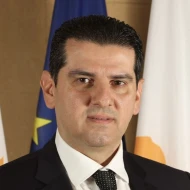What might Israel’s offshore gas discoveries have to do with the Cyprus reconciliation talks between Turkey and Greece, which are resuming in an effort to resolve the conflict over the island that’s been divided for 40 years? At a conference six months ago (sponsored by the Institute for National Security Studies in Tel Aviv), a representative of Turkey sat next to a Greek Cypriot representative and debated the possibility of Israel exporting its gas to the two neighboring countries, which both desperately want it. The idea was to export the gas from the Leviathan reserve directly to a facility that would be set up in Vassilikos, in southern Greek Cyprus. Alternately, the gas could be delivered via an underground pipeline to the port of Jihan in southern Turkey, but en route the pipeline would have to cross under the territorial waters of Greek Cyprus to avoid crossing Lebanese and Syrian territory. Within minutes the two speakers left the audience with little hope the two countries would ever be able to cooperate on such a regional initiative.
“Turkey will never recognize any deal taking place on the Greek side of Cyprus,” said Dr. Ahmet Khan of Kadir Has University in Istanbul. “There is no chance that the Cypriot government will approve the running of a gas pipeline to Turkey through its economic waters,” declared Charles Ellinas, CEO of the Cyprus National Hydrocarbons Company. The presence of gas in the Mediterranean played a role in Cypriot-Turkish tensions even before Israel’s export potential became an issue. It started when Turkish Prime Minister Recep Tayyip Erdogan warned Greek Cyprus that it didn’t dare issue licenses for oil and gas drilling in disputed international waters. Tensions increased further when Turkey backed its threat by sending warships to the area. That move led to unconfirmed reports that Israel sent warplanes to circle over that Turkish flotilla. Whatever the case, international energy companies have been careful to avoid bidding for the controversial licenses.
The diplomatic row eventually assumed economic-strategic overtones. Cyprus has a relatively backward electricity economy and needs natural gas to lower the costs of energy on the island and detach it from dependence on foreign energy suppliers. Island officials were also hoping to leverage the discoveries in the Mediterranean and become a regional gas trading hub, serving as a bridge for exporting gas to the Far East or to Greece, and strengthen the island’s shaky economic and geopolitical situation. These hopes suffered a blow last year when the Aphrodite gas field located between Cyprus and Israel turned out to have more modest reserves than expected, and when the Israeli defense establishment expressed vehement objections to sending Israeli gas to the island.
At the same time, Israel’s relations with Turkey were beginning to thaw after several years of being in deep freeze following the 2010 Israel Defense Forces’ lethal raid on the Gaza-bound Turkish ship Mavi Marmara. This led several international and Turkish firms to show interest in financing a gas pipeline from the Leviathan drilling site to Turkey at a cost of $5 billion. The project has the support of the Israeli government for geopolitical reasons. The growing Turkish economy is also seeking cheaper gas, which it now must import from Iran or Russia at relatively high prices, or even import liquefied natural gas from North Africa at double the cost.
“Turkey has nothing against Israeli gas,” said Khan at the INSS conference. “After [Israel’s] apology [for the Marmara incident], Israel can contribute to Turkey more than Turkey can contribute to it.” But his interlocutor, Ellinas, retorted that Cyprus would not sit idly by, and reminded Khan that Greek Cyprus has EU backing in its conflict with the Turks. Such a project, however, is still contingent on a series of worldwide agreements and would need the backing of the European Union and the United States. But neither is keen on starting up with Russia, which views the introduction of Mediterranean gas to Turkey as a direct threat to the monopoly its Gazprom has on supplying gas to Europe.
Source: Haaretz













